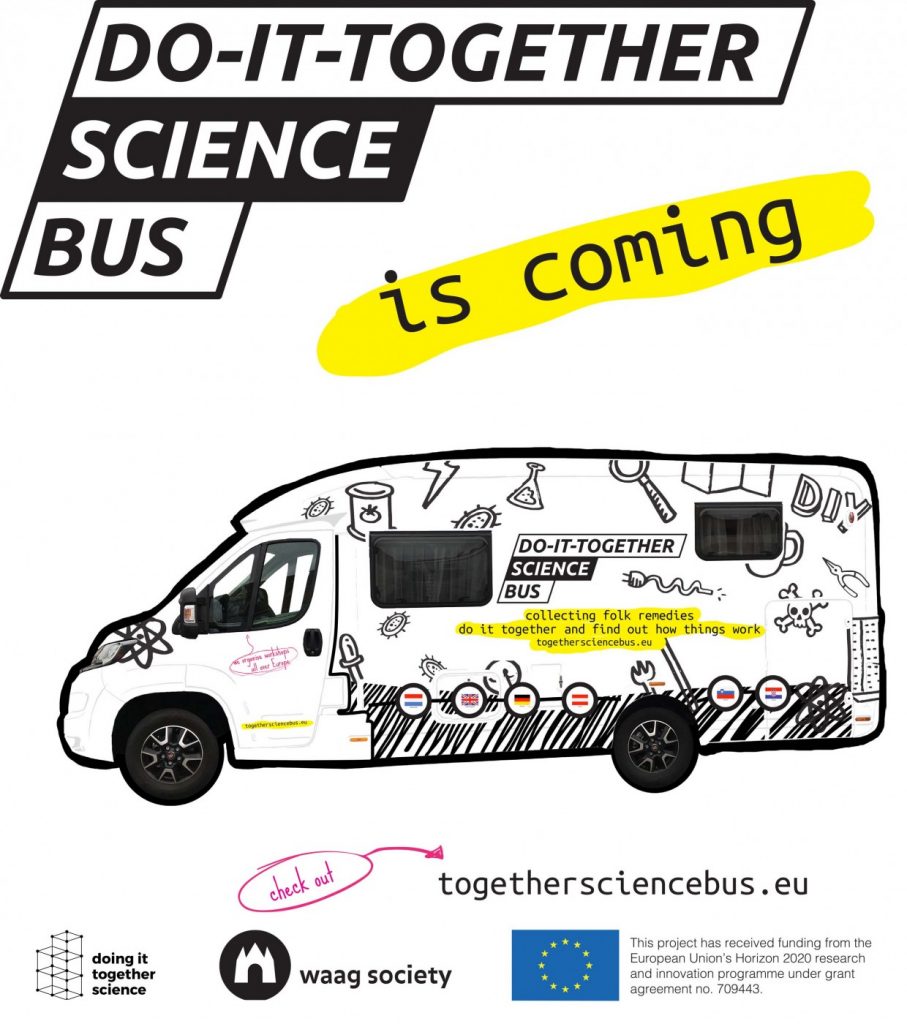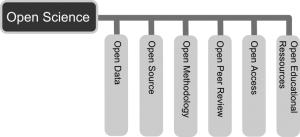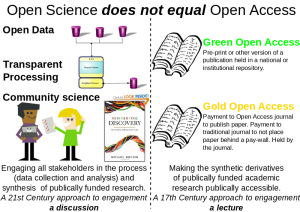The Science Bus is coming!
How clean is the air on your street, and can you measure this yourself? Do you know what lives in your yogurt? And how can you charge your phone when you don’t have access to electricity? We want to find out with you! The Science Bus brings you workshops and tools to find the answers to these questions and investigate the world around you.
And how can you charge your phone when you don’t have access to electricity? We want to find out with you! The Science Bus brings you workshops and tools to find the answers to these questions and investigate the world around you.
The Science Bus will travel across Europe in search of folk remedies until November 2017. A folk remedy is an everyday trick or “life hack” that anyone can use to make or fix just about anything. Some of this knowledge might even have been around for hundreds (maybe thousands!) of years.
In partnership with the Student Project Bank and SportBU, the Science Bus will be hosted at Slades Farm Family Festival on Sunday 16th July and at Hengistbury Head Visitor Centre from 18th – 21st July. Come along and take part in a workshop!
Why are we on a hunt for folk remedies?
We’d like to put them to the test! How do these remedies work? What are the ingredients? What are the scientific principles behind them? And what can we do to improve them? By combining old knowledge with new technologies, we want to make these clever folk remedies accessible to everyone.
The Science Bus is hosting workshops all around Europe to engage curious minds and encourage people to share their life hacks. The Science Bus will stop at festivals, campsites and marketplaces. In the workshops, our captains will investigate these folk remedies with you. They’ll bring along handy instructions and Do-It-Yourself (research) tools for you to build simple, scientific instruments. This is science for everyone!
Why is the Science Bus important?
We are so used to buying everything we need (and more) that we tend to forget that we can produce and fix things ourselves. We’re not sure exactly what’s in our food, where our products are made , what is right or wrong, or what our options are. Our goal with the Science Bus is to raise questions, encourage critical thinking and investigate our daily environment together. Why? We want as many people as possible to experience that making things themselves and gathering knowledge is both easy and fun!
Catch the Science Bus
The Science Bus will be driving around Europe until November 2017: from the UK to Slovenia, Spain, Germany and many places in-between. The Science Bus captains will share their adventures and discoveries via our website and social media. Do you know any clever folk remedies? Share them with our captains or via our website so that everyone can make use of it! Get involved and follow the Science Bus via togethersciencebus.eu or #sciencebus and be sure to follow it on Instagram, Facebook and Twitter.
Who is behind the Science Bus?
The Science Bus project is realised by a group of enthusiastic makers from Waag Society – institute for art, science and technology – based in Amsterdam and is part of the European project, “Doing It Together Science.” Within this project, research institutions work together with science galleries, museums and art institutions to engage as many people as possible with citizen science. By hosting innovative workshops, exhibitions and activities all around Europe, the eleven partners show that citizen science is an accessible and fun way to explore the world around you. For more information check out togetherscience.eu.















 Upcoming opportunities for PGRs – collaborate externally
Upcoming opportunities for PGRs – collaborate externally BU involved in new MRF dissemination grant
BU involved in new MRF dissemination grant New COVID-19 publication
New COVID-19 publication MSCA Postdoctoral Fellowships 2024
MSCA Postdoctoral Fellowships 2024 Horizon Europe News – December 2023
Horizon Europe News – December 2023